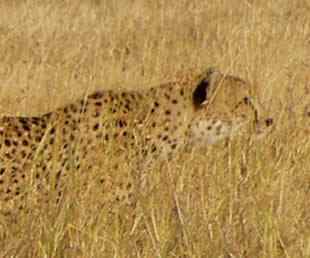News
Dr Krystyna Golabek describes cutting edge new tracking and remote measure technology for cheetah research
Exciting new technology developed by Prof. Alan Wilson’s Structure and Motion Laboratory at London’s Royal Veterinary College has allowed precise tracking and remote measures on wild cheetah at the Botswana Predator Conservation Trust’s study site. This new technology, armed with solar-power cells, GPS-loggers, and 3D activity sensors, is incredibly power-efficient and is programmed to collect novel data such as virtually continuous GPS and the exact location, times and ‘effort’ invested in hunting. Results of this study confirm that cheetah are still the fastest land mammal, but surprisingly the data show that their success as predators owes more to their manoeuvrability. Contrary to previous studies we also find that cheetah hunt at night and in the day as much as they do at dawn and dusk, and interestingly we saw no difference in top speed or chase distance in dense versus open habitat. We are now using this technology across the large predator guild to better our understanding of fine-scale movement patterns, habitat selection and patterns of intra-guild avoidance and overlap.






